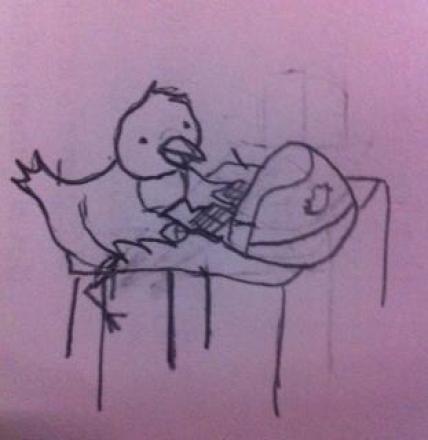
After I posted a story yesterday about Stewart Lee standing in for Stuart Maconie on BBC6’s Freak Zone, it was pointed out to me that Lee had previously been critical of Maconie in his 2008 show 41st Best Stand-Up Ever. Lee was putting the boot into talking head pundits-for-hire and mentioned that Maconie, for a fee, can recall any aspect of human experience.
This was obviously a joke making a general point with no real personal malice intended. In the same way that Lee’s charity work routine about Russell Howard was not being directly vindictive either. And I presume Maconie took it in that spirit as Lee has, I think, been interviewed on his show. Either that or Maconie doesn’t know about the routine.
I guess they didn’t meet this time as Lee was covering for the absent Maconie, but funnily enough Lee himself touched on this problem of meeting people you have been rude about while doing the show. He mentioned on air that on his way into the studio he had bumped into Russell Brand and despite having been critical of him in the past was polite and Brand was disarmingly polite back.
The problem of coming face-to-face with people you’ve said bad things about is one that I’ve encountered regularly as a critic over the years. It's funny how comedians who say that they do not read reviews seem to know every word by heart after a couple of drinks when you meet them in a bar. I’m currently avoiding our local artisan bakery because I happen to know that someone who is in a sketch show I was less than impressed with works there.
I'm with Alexei Sayle on this one. He once said many years ago he didn't go to showbiz parties in case he met Phil Collins and found out he liked him and would then feel uncomfortable making jokes about him. Though judging by the last paragraph of this interview Sayle has mellowed. I try to steer clear of delicate situations by not having friends who are performers. It's difficult as I'm a comedy fan first and foremost and in some ways at least we are on the same side.
I know of a least one critic who has reviewed a comedian he was at school with. The critic correctly declared an interest but it might have been better for fair play all round if someone else on the publication had written the review. I’ve had friendships with comedians over the years but I’ve noticed cracks appear when I’ve been less than supportive. That's why when I’m reviewing I have a policy of “arrive last, leave first”, so that I don’t have to mingle with friends of the performer or anyone that might influence what I write.
The situation has become worse with social media, where bonds can be quickly formed over an exchange of tweets. Naturally I engage with comedians on Twitter because we are invariably interested in the same subjects, but when it comes round to Edinburgh, for example, i soon notice that the same people who have been chatting idly about old TV programmes and their favourite movies are suddenly sending me ticket links and asking me to come to their gigs and making me feel guilty for not turning up.
Lee also referred to the problem of fraternising with the enemy when he wrote about going to the British Comedy Awards in December. He went reluctantly to help his DVD and “shook hands with people I’d ridiculed”. It is a situation that is never going to end well. Lee felt a bit shabby. I have to think twice about being amicalble on Facebook. And worst of all, I have to walk further to buy my bread.



